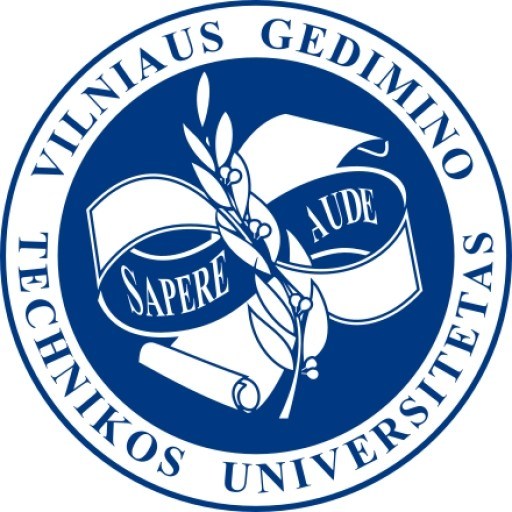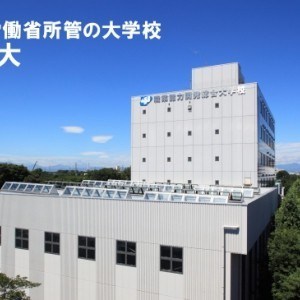Photos of university / #unistavanger
Petroleum Engineering at the University of Stavanger is a comprehensive bachelor’s degree programme designed to prepare students for a dynamic and technologically advanced industry. This programme provides a solid foundation in the core principles of petroleum engineering, including reservoir engineering, drilling operations, production technology, and Oil & Gas exploration techniques. Throughout the course, students will gain a thorough understanding of the geological and geophysical aspects relevant to petroleum extraction, as well as develop strong technical skills in analysing and solving complex engineering challenges associated with the development and management of petroleum reservoirs.
The curriculum combines theoretical knowledge with practical applications, giving students opportunities to engage in laboratory work, simulation exercises, and industry projects. Emphasis is placed on sustainable and environmentally responsible practices, ensuring that graduates are aware of the importance of reducing environmental impact in energy production. The programme also integrates coursework in mathematics, physics, chemistry, and computer science, providing a multidisciplinary approach essential for modern petroleum engineering.
Students enrolled in this programme will have access to state-of-the-art facilities, including specialized laboratories and simulation centres, which facilitate hands-on learning. Collaboration with industry partners ensures that students stay up-to-date with the latest technological advancements and industry standards. Moreover, the programme offers opportunities for internships and cooperative education, fostering valuable industry contacts and practical experience.
Graduates from the Petroleum Engineering bachelor’s degree programme at the University of Stavanger are well-equipped for careers in oil and gas exploration, production, and management, both in Norway and internationally. They can pursue roles such as reservoir engineers, drilling engineers, production engineers, and specialists in reservoir management and exploration geoscience. The programme aims to develop not just technical competence but also problem-solving abilities, communication skills, and a sustainable mindset, preparing students for leadership roles in the energy sector.
This degree serves as a stepping stone for further studies in master’s programmes related to petroleum, energy, and geosciences. With a strong focus on innovation, sustainability, and responsible resource management, the Petroleum Engineering programme at the University of Stavanger offers a forward-looking education tailored to meet the demands of a rapidly evolving industry while emphasizing ethical practices and environmental stewardship.
Petroleum Engineering at the University of Stavanger is a comprehensive degree program designed to prepare students for a dynamic and challenging industry focused on the exploration, extraction, and production of oil and gas resources. The program combines rigorous coursework, practical training, and industry collaboration to equip students with the essential technical skills and theoretical knowledge needed to succeed in the petroleum sector. Throughout the program, students will study core subjects such as geology, reservoir engineering, drilling engineering, production technology, and reservoir management, gaining a solid understanding of the entire value chain of petroleum operations. Emphasis is placed on sustainable and environmentally responsible practices, ensuring graduates are prepared to contribute to the energy industry's evolving landscape with innovative solutions. The program also covers advanced topics such as enhanced oil recovery, seismic data interpretation, flow assurance, and well integrity, reflecting current industry challenges and technological developments. Students will have the opportunity to participate in laboratories, field trips, and internships, facilitating practical experience that complements their academic learning. The curriculum is designed to foster problem-solving skills, teamwork, and critical thinking, essential for tackling complex engineering problems. The program is taught by experienced faculty members who are experts in their fields, often collaborating with industry partners to bring real-world perspectives into the classroom. Graduates of the Petroleum Engineering program at the University of Stavanger are well-prepared for careers in upstream oil and gas companies, consultancy firms, and research institutions, both domestically and internationally. The program also provides a solid foundation for postgraduate studies and research in petroleum engineering and related disciplines. With a focus on innovation, sustainability, and technological advancement, the program aims to develop competent engineers capable of leading the future of energy production responsibly and efficiently.
The Bachelor’s degree program in Petroleum Engineering at the University of Stavanger requires applicants to hold a the Norwegian or an equivalent international upper secondary school diploma with a strong background in mathematics and sciences, particularly physics and chemistry. Prospective students must demonstrate proficiency in English, typically through standardized tests such as IELTS with an overall score of at least 6.0 or TOEFL with a minimum score of 80 Internet-based test. The program emphasizes a solid foundational knowledge in mathematics, physics, and chemistry, and applicants are expected to have completed courses or have demonstrated competence in these areas to be considered eligible for admission. Additionally, prior experience or coursework related to engineering principles, thermodynamics, fluid mechanics, and geology can be advantageous. The university may also consider relevant work experience or motivation letters during the selection process. For students whose educational background is outside of Norway, an evaluation of the diploma's equivalency is necessary, often conducted through national recognition agencies or the university's admissions office. The application process typically involves submitting official transcripts, proof of language proficiency, a completed application form, and sometimes a personal statement highlighting the applicant’s motivation and interest in petroleum engineering. Students are advised to meet the general admission requirements for Norwegian universities, which include meeting specific academic achievement levels and documentation standards. The university also recommends prospective students to familiarize themselves with the curriculum's technical and interdisciplinary nature, emphasizing sustainability, innovation, and safety in the petroleum industry. Candidates must comply with any additional requirements set by the university or the Norwegian government for international students, including visas and health insurance. Adherence to these program requirements ensures eligibility for admission and paves the way for successful completion of the petroleum engineering degree, preparing graduates for careers in energy, resource management, and engineering consultancy.
Financing studies for the Petroleum Engineering programme at the University of Stavanger primarily involve a combination of government funding, student scholarships, personal financial contributions, and financial aid options. Norwegian residents benefit from the country's comprehensive higher education funding system, which includes coverage of tuition fees for Norwegian and EU/EEA students, making the studies accessible without direct tuition costs. Non-EU/EEA international students are generally required to pay tuition fees, which vary depending on the program and student status, but many students secure scholarships or financial aid to support their studies.
The university offers several scholarship opportunities aimed at both Norwegian and international students, which can help offset living expenses or partial tuition costs. Additionally, students often rely on personal savings, family support, or student loans secured through the Norwegian State Educational Loan Fund (Lånekassen). Lånekassen provides financial support to students who meet the eligibility criteria, covering living costs, travel expenses, and sometimes even study-related costs.
Students are encouraged to actively seek external funding sources, including research grants, private foundations, and industry-sponsored scholarships, especially relevant for students in engineering programs with potential for industry collaboration. The cost of living in Stavanger, a city known for its vibrant oil and energy sector, can be high, and students need to plan their finances carefully to cover accommodation, food, transportation, and study materials. International students should also budget for health insurance and visa-related costs if applicable.
While official tuition fees for Norwegian and EU/EEA students are non-existent, the financial planning for international students must consider these expenses as part of their overall budget. The university provides financial advising services to help students understand their options, plan their finances effectively, and explore funding opportunities relevant to Petroleum Engineering students. Overall, financing studies at the University of Stavanger involves a combination of national support systems, personal savings, external scholarships, and possibly income from part-time work, aimed at making education accessible and manageable for students from diverse backgrounds.
The Bachelor's degree in Petroleum Engineering at the University of Stavanger is a comprehensive program designed to prepare students for a professional career in the oil and gas industry, focusing on the technical, economic, and environmental aspects of petroleum extraction and production. The program combines rigorous coursework in core engineering principles, geology, reservoir engineering, drilling, and production technology, providing students with a solid foundation to understand the complex processes involved in hydrocarbon exploration and development.
Students have the opportunity to engage in practical exercises, laboratory work, and field trips that enhance their understanding of real-world challenges faced by the industry. The program emphasizes sustainable resource management, safety, and environmental considerations, reflecting the university’s commitment to responsible oil and gas development. Interdisciplinary collaboration is encouraged through projects and teamwork, preparing students for the multidisciplinary nature of industry work.
The curriculum includes modules related to fluid mechanics, thermodynamics, material science, and computer applications, essential for optimizing exploration and extraction processes. Additionally, students learn about the geosciences supporting petroleum engineering, including seismic interpretation and reservoir analysis. The program also offers elective courses allowing students to specialize in areas such as offshore technology, well engineering, or petroleum economics.
The University of Stavanger maintains strong collaborations with industry partners, providing students with internship opportunities and exposure to cutting-edge technology and practices. Students may also participate in research projects that address current challenges such as digitalization, renewable energy integration, and climate impact mitigation in the oil and gas sector.
Graduates of the program are well-equipped to pursue careers in upstream petroleum activities, reservoir management, drilling engineering, and other sectors within the energy industry. Many find employment at leading oil companies, consultancy firms, or government agencies involved in resource management and regulation. The program’s focus on innovation and sustainability aims to prepare students for future developments in the energy landscape, including the transition toward renewable energy sources.
Overall, the Petroleum Engineering program at the University of Stavanger provides a rigorous and industry-relevant education for students aiming to make significant contributions to the sustainable development of Norway’s and the world’s oil and gas resources.








